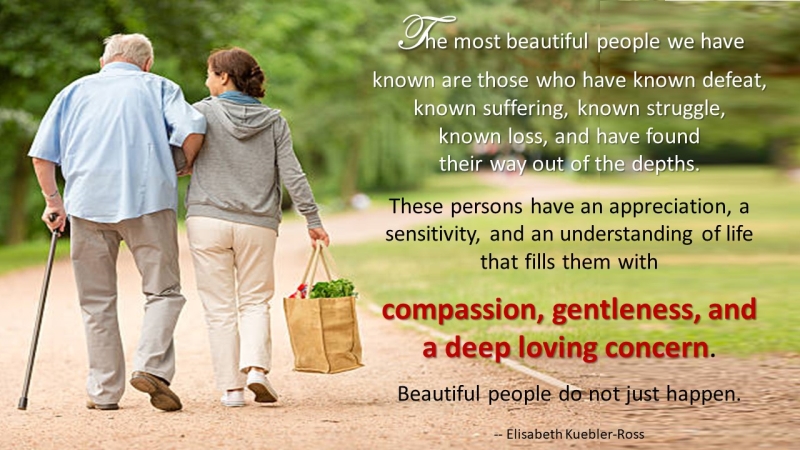CRITICISM CAN BE A HARD PILL TO SWALLOW. It can leave us feeling discouraged and hopeless, like nothing we do will be good enough. That shouldn’t be the case, though. Instead of criticism, what if we reassure someone that they can still make things right? No matter how bad the situation is, is there still time for them to turn things around and make a positive change? This article explores how reassurance can be much more effective than criticism when trying to help someone learn from their mistakes.
At its core, reassurance shows someone you believe in them and their ability to correct whatever mistake they made. It also allows them to take ownership of their actions and work on developing better solutions. Giving people support instead of criticism lets them learn from their mistakes without making them feel judged or ashamed.
Lastly, reassuring someone instead of criticizing them has helped them feel better about themselves, given them more motivation and confidence, and made them feel safe so they can learn without worrying about getting in trouble. This article will discuss the power of reassurance and why we must use it instead of criticism to help others correct what is wrong with them.
Understanding Self-Criticism
Self-criticism can be a difficult habit to break. It’s natural to want to point out any flaws or mistakes we make, but this kind of thinking can harm our mental health. Feelings of worthlessness, melancholy, and nervousness are all possible outcomes. That’s why it’s crucial to understand self-criticism and how we can help ourselves move forward positively.
Learning to identify instances of self-criticism is the first step. This includes thoughts like “I’m not good enough,” “I should’ve done better,” or “I don’t know what I’m doing.” Once we become aware of these thoughts, it’s important to challenge them with more positive statements such as “I’m learning something new,” “I’m making progress,” or “I’m doing my best.” This helps us reframe our thinking more encouragingly and allows us to focus on our progress.
Another way to practice self-compassion is by talking kindly to ourselves. Instead of criticizing ourselves for making mistakes, we can use reassuring phrases like “It’s okay if I make mistakes; everyone does” or “It’s alright if I don’t get the results I want; I am still learning and growing.” Doing this helps us build confidence and encourages us to keep trying even when things are unplanned.
By recognizing our self-criticism and developing strategies for being kinder towards ourselves, we can create a healthier relationship with ourselves and better manage any issues that arise. Through this process, we can learn how to accept ourselves as we are while working towards improving certain aspects of our lives that need attention.
The Impact Of Criticism On Self-Esteem
Criticism can have a powerful impact on someone’s self-esteem. Criticizing someone can make them feel like they are not good enough, that their efforts are not reasonable enough, or that they should strive for something better. Even if the criticism is meant to help, it can leave the person feeling discouraged and unworthy. This can affect how someone views themselves and their capabilities, affecting their motivation and performance.
When we criticize someone, we tell them something is wrong with them or that they need to do better. This can cause a person to become defensive or angry. Still, it can also lead to feelings of inadequacy, worthlessness, and low self-esteem. It’s important to remember that people tend to internalize criticism and take it personally, even if it wasn’t intended to attack them. Consequently, this negative feedback can damage an individual’s self-worth over time.
Rather than criticizing someone for their mistakes or shortcomings, it’s often more beneficial to encourage them instead. Offering support and reassurance helps build resilience and confidence so the person knows they can still make things right even when they mess up. It’s much easier for people to learn from their mistakes when they don’t feel judged or inadequate because of them.
Positive reinforcement is critical here: by acknowledging what the person did right rather than focusing solely on what went wrong, they will gain a greater sense of accomplishment, further boosting their self-esteem. People respond better to encouragement than criticism – so instead of pointing out where someone needs improvement, try reinforcing what they did well first!
Constructive vs. Destructive Criticism
Understanding the difference between helpful feedback and harmful criticism is crucial. Constructive criticism is intended to help someone improve, while fierce criticism can damage self-esteem. Knowing when to use either type of feedback can be crucial for helping someone learn and thrive.
Constructive criticism should focus on helping the person improve their skills or work. This kind of criticism should provide detailed information about what needs to change and how it can be done. For example, suppose someone has written an essay. In that case, the constructive critic might point out grammar errors or suggest ways to make the argument more precise and concise. It’s also helpful for the critic to offer encouragement and reassurance that mistakes are part of learning.
On the other hand, destructive criticism focuses on attacking a person’s character rather than offering helpful advice. For instance, saying something like “You’re never going to get this right” is not only unhelpful, but it can have long-term effects on a person’s sense of self-worth as well. This kind of feedback could be more valuable because it generally does not provide any guidance on how to make positive changes or correct mistakes but instead leaves the person feeling discouraged and worthless.
Therefore, we must care when providing feedback to avoid hurting someone’s feelings with unnecessary negative comments. Instead of criticizing someone for their mistakes, we should encourage them by reminding them that they can make things right and that we believe in their potential for growth and improvement.
Developing A Positive Self-Image
Developing a positive self-image is integral to creating a healthy and happy life. It’s simple to dwell on the negative or to be hard on oneself for perceived shortcomings. But, learning to recognize your strengths and appreciate yourself for who you are can profoundly affect your life.
The first step to developing a more positive self-image is to become aware of when criticism and negativity creep in. Instead of getting down on yourself when something doesn’t go as planned, try reframing it as an opportunity for growth. Ask yourself what lessons you can learn from the experience and how it could help you achieve your goals in the future.
It’s also important to take time out just for yourself – do things that make you feel good and give you joy. This could range from walking in nature, spending time with friends or family, reading a book, etc. When we take care of ourselves first, we’re better equipped to handle any challenges that come our way.
By trying harder to treat ourselves with compassion and understanding, we can start building healthier relationships, which will benefit all aspects of our lives. So why not give it a go? The rewards are worth it!
How To Reassure Someone Without Criticizing
It is crucial to be able to reassure someone without criticizing them. Criticizing someone can be damaging and is not always the most effective way to help someone. Reassurance, however, can positively affect a person’s well-being and give them the tools to make things right.
First, it is essential to be understanding and empathetic when reassuring someone. Acknowledge that the situation may be difficult for someone and offer to help. Providing constructive feedback rather than criticism; will allow the person to move forward positively without feeling judged or criticized.
Second, it is beneficial to offer support and encouragement instead of criticism. This encourages the person to continue working towards making things right instead of becoming discouraged or giving up altogether. Let them know that mistakes happen and remind them that everyone makes mistakes – it’s how we learn from our mistakes that matters most. It can also be helpful to provide resources such as books or articles about their particular challenge or issue so they can learn more about how to go about fixing it.
Finally, instead of criticizing someone for their situation or mistake, focus on providing reassurance that they can still make things right and learn from their experience. Remind them of their strengths and capabilities, so they know they have what it takes; focus on being supportive rather than judgmental, so they feel safe to work through their issues without criticism or ridicule. Reassuring someone in this way will help build their self-esteem while also helping them find practical solutions to whatever problem they may be facing.
Strategies For Offering Constructive Feedback
When offering constructive feedback, it’s important to remember that the goal is to provide someone with the tools and guidance they need to make a positive change. It’s not about criticizing or judging but helping them find ways to improve. A few key strategies to consider when offering this kind of support exist.
First, focus on the behavior or action being discussed, not the individual. This helps keep the conversation focused on finding solutions rather than getting stuck in finger-pointing. Remember to be compassionate and understanding too. Acknowledging that we all make mistakes can go a long way in helping someone feel less defensive and more open to hearing your feedback.
Another essential strategy is to emphasize what went well as much as what didn’t go so well. Make sure you’re giving plenty of recognition for any successes, along with any constructive criticism. This will help encourage the person and give them hope that they can still make things right despite their mistakes.
Finally, offer clear advice with actionable steps for how someone can move forward and address whatever issue is at hand. Concrete advice can empower them to take ownership of their future success and increase their confidence in their ability to improve things.
Creating An Action Plan To Make Changes
When providing constructive feedback, one of the most important things to do is to create an action plan for change. This helps the person who has received the input understand what they need to do to improve their performance or behavior. Creating an action plan gives them a concrete way of making the necessary changes to succeed and grow.
Making a plan of action requires first pinpointing problem areas. Once these areas have been identified, you must set goals for how you want those issues to be addressed. These goals should be specific and measurable to track progress as you move forward. You should also include a timeline and any resources or help needed to reach each goal.
Once an action plan has been created, both parties must follow through on the agreement. This means regularly checking in with one another and encouraging along the way. Providing positive reinforcement when successes are achieved is essential. This will help motivate and boost morale during times of difficulty and uncertainty. By following this action plan, both parties can work together toward making lasting changes that will benefit everyone involved.
Building Self-Confidence Through Positive Self-Talk
Self-confidence is a critical factor in achieving success and finding happiness. It involves recognizing strengths, setting realistic goals, and reinforcing optimistic thoughts about oneself. Positive self-talk can help to build not only confidence but also trust in one’s own ability to take action and make changes.
When practicing positive self-talk, it’s important to begin by being kind to oneself. This means avoiding criticism or negative thoughts about yourself, even if you’ve made mistakes. Instead of beating yourself up for missteps, focus on the progress you have made and the successes that you have achieved. You can also remind yourself of your unique abilities and skillsets – there are things that only you can do!
On top of that, take time each day to appreciate yourself for who you are and what you have been able to accomplish so far. Acknowledge the effort to make changes and be proud when they come to fruition. When faced with challenges or obstacles, remember the strength and resilience to overcome them. In doing so, you will build your self-confidence through positive self-talk.
Setting Realistic Goals And Expectations
Setting realistic goals and expectations to build self-confidence must be considered. Goals should be achievable, and expectations should not be too high. This can help one stay motivated and focused on the task at hand. Individuals must recognize their capabilities when setting these goals and expectations, which goes a long way toward building self-confidence.
Breaking goals and expectations into smaller steps is helpful when creating plans and expectations. This allows one to focus on individual steps while working towards the ultimate goal. Setting small, measurable goals also will enable individuals to track their progress which can lead to increased motivation and self-esteem. Also, people should only set themselves up to succeed by expecting a little of themselves. Instead, they should try to make progress, not be perfect.
Finally, when working towards these goals, individuals should remember that mistakes are part of learning and growth – even if it sometimes doesn’t feel like it! Recognizing that setbacks happen but don’t have to define one’s progress or journey is essential. One can always learn and develop new skills. Assuring someone, they can still make right what is wrong with them helps keep them motivated and confident in their abilities as they achieve their goals.
Seeking Professional Help When Needed
When we set realistic goals and expectations for ourselves, it’s important to remember that sometimes the best way to reach them is by seeking professional help. Seeking professional help can be a sign of strength, not weakness. This doesn’t mean that you’re weak or inadequate; it simply means that you recognize the value of an outside perspective and the expertise of a trained individual.
Counselors, therapists, and other mental health professionals have been carefully trained to help people like you make sense of their experiences, identify areas for improvement, and develop strategies for achieving success. You can make a plan that fits your needs if you work with someone who understands your situation. Plus, having a supportive figure in your corner can provide additional motivation as you work toward your goals.
There are many paths to self-improvement – don’t be afraid to explore them all! It can be challenging to open up about our struggles and shortcomings. Still, when we do seek out professional help, it increases our chances of making right what is wrong with us. Sometimes talking through our issues with someone who is not judgmental can lead us to new insights and solutions.
Conclusion
It takes time to learn to stop criticizing oneself. However, it is possible. The most important thing is to offer constructive feedback rather than criticism to help build self-confidence. If you feel overwhelmed by your self-criticism, seek help from a trusted friend or professional. Reassure yourself that mistakes are part of the learning process and it’s okay to make them; use those moments as an opportunity for growth.
Take the time to listen and validate someone else’s feelings without passing judgment. Help them recognize their strengths and accomplishments so they can draw upon them during difficult moments and boost their self-esteem. Remind them that mistakes are a normal part of life, and encourage them to focus on what they can do now to move forward in a positive direction.
As we learn how to better respond when faced with our own self-criticism, we can also be there as support for others who may need some extra reassurance that they can still make right what is wrong with them.






